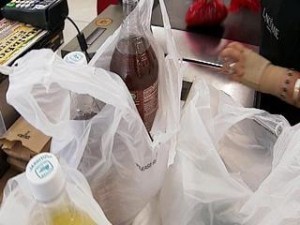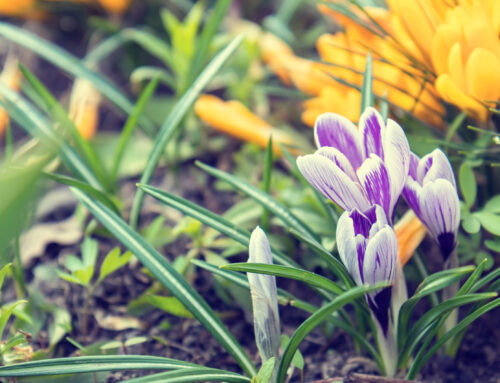Biting your nails, spending hours on Pinterest, and drinking too much are just a few bad habits that many people have in common. While the bulk of our bad habits affect only us, some affect those around us, and others have a negative impact on our planet. Here are a few habits that are bad for the environment, as well as some helpful alternatives that Mother Earth will thank you for using:
While bottled water is a convenient means of providing uncontaminated water during a natural disaster, plastic bottles produce up to 1.5 billion tons of waste each year—and that figure includes only the bottles that make it to landfills. One alternative to this problem is to purchase a reusable plastic or metal bottle. This option is not only good for the environment, but also good for your wallet. The average American goes through roughly 165 bottles of water each year. At an average price of $1.37, that equates to $226.05.
Or you could spend $10 on a reusable bottle and get water free from any faucet.
Shopping Bags
Using too many plastic shopping bags is another bad habit for the environment. The average American family will go through around 1,500 plastic shopping bags annually. Those bags end up at landfills, where they can either endanger wildlife or release toxins into the air as they biodegrade. If you want to cut down on your plastic bag usage, you might consider investing in a reusable tote bag. These bags are often made from recycled material and are both spacious and sturdy enough to carry your groceries through the front door. Many department stores also sell tote bags that are both fashionable and relatively inexpensive.
Wasting Water
You might be surprised to see “wasting water” on the list of bad habits for the environment. How is wasting water bad for the environment? It certainly doesn’t cost too much. The average price of water (the kind that runs through your new Brizo faucets) is around $1.50 for every 1,000 gallons. So, what’s the big deal? Even though water is a renewable resource, the rate at which we are using it is steadily exceeding the earth’s ability to produce it. Water is also a shared resource—the more we use, the less that farmers, forests and wildlife can use.
The alternative? If you can’t afford to make the switch to water-efficient appliances (e.g. low-flow showerheads, etc.), simply use less water. Avoid taking that extra shower, or that unnecessary flush. Treat leaky faucets as soon as possible, as a faucet that drips once every second will result in 2,700 wasted gallons of water annually.
Smoking
We all know that smoking is bad for your health. New statistics publish almost daily, detailing how smoking slowly kills us. These stats even extend beyond the immediate effects of taking a drag: secondhand smoke causes nearly 50,000 fatalities among non-smoking adults each year. The effect on the environment isn’t that much better. The average puff of cigarette smoke contains around 4,000 chemicals. When released into the air, these chemicals have ten times the effect on air quality than any one diesel engine. Cigarette butts are another problem entirely. These small plastic tubes rarely make it into trash receptacles and can easily release harmful chemicals into the water supply, or be ingested by marine life. And let’s not forget, cigarettes require paper—nearly 600 million trees are cut down each year for the tobacco industry.
While my immediate recommendation is to simply quit, I recognize how difficult that is for many. Aside from switching to the patch or gum, you might also consider investing in electronic cigarettes. Ecigs are reusable, and instead of releasing smoke into the air, they only release water vapor. Not enough research has been done to conclude if this is a healthier alternative for your body, but it’s a good way to keep the air clean.
Speaking of poor air quality, let’s talk about vehicle emissions. Thanks to the Clean Air Act of 1970, lead-based emissions are a thing of the past (this is why the gas you pump into your car is “unleaded”). However, we’re not quite out of the woods. The sheer volume of cars driving and idling each day still has a massive impact on the environment—the production of greenhouse gases being at the forefront. The increased demand for more gas-burning vehicles might also explain the increase in major oil spills over the past few years.
If you can’t afford to buy a hybrid or electric car, find other ways to reduce the time you spend cars. Walking, cycling and public transportation have long been eco-friendly alternatives to taking your own car.
Drew Kobb, in addition to studying civil law, loves long distance running and considers himself a health and fitness enthusiast. His interests range all over the medical field, and Drew highlights that range on his blog, Dr. Ouch. He also has a passion for the environment.










Leave A Comment